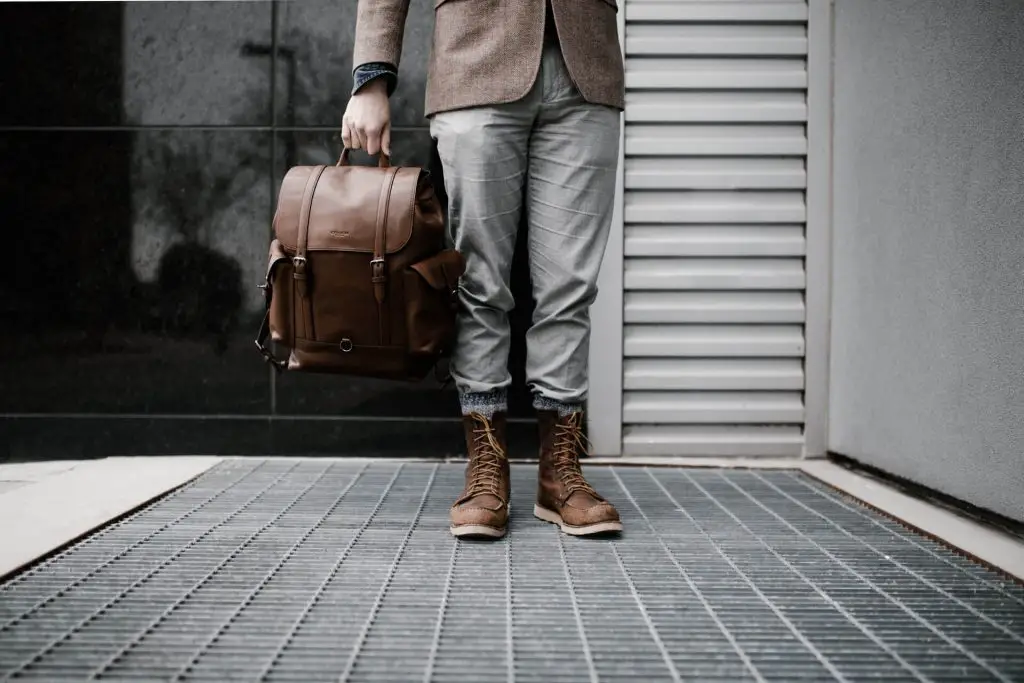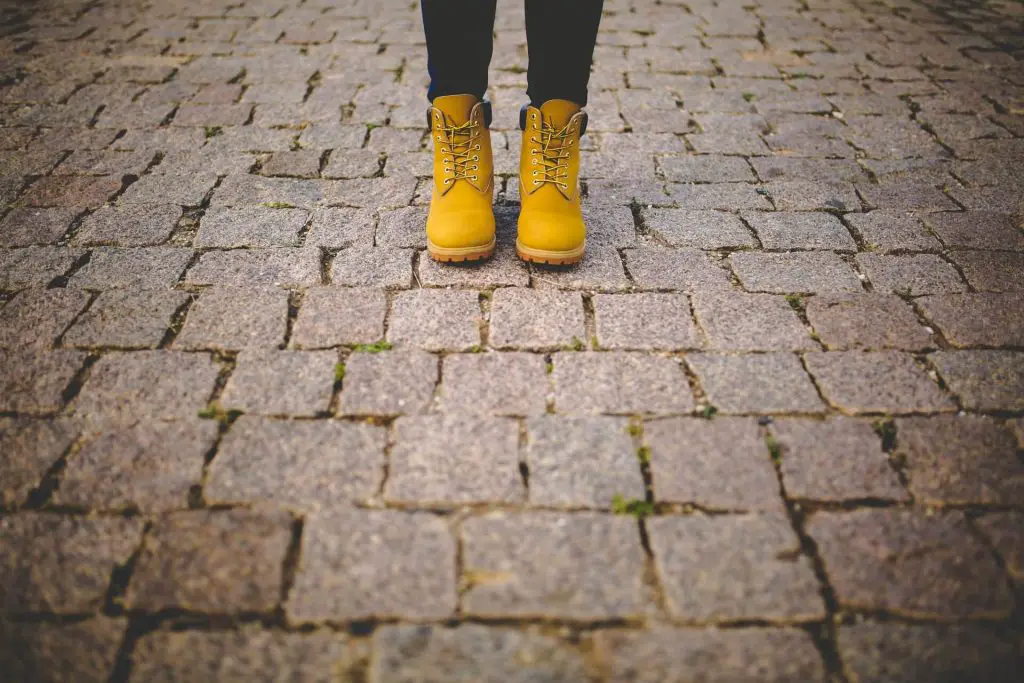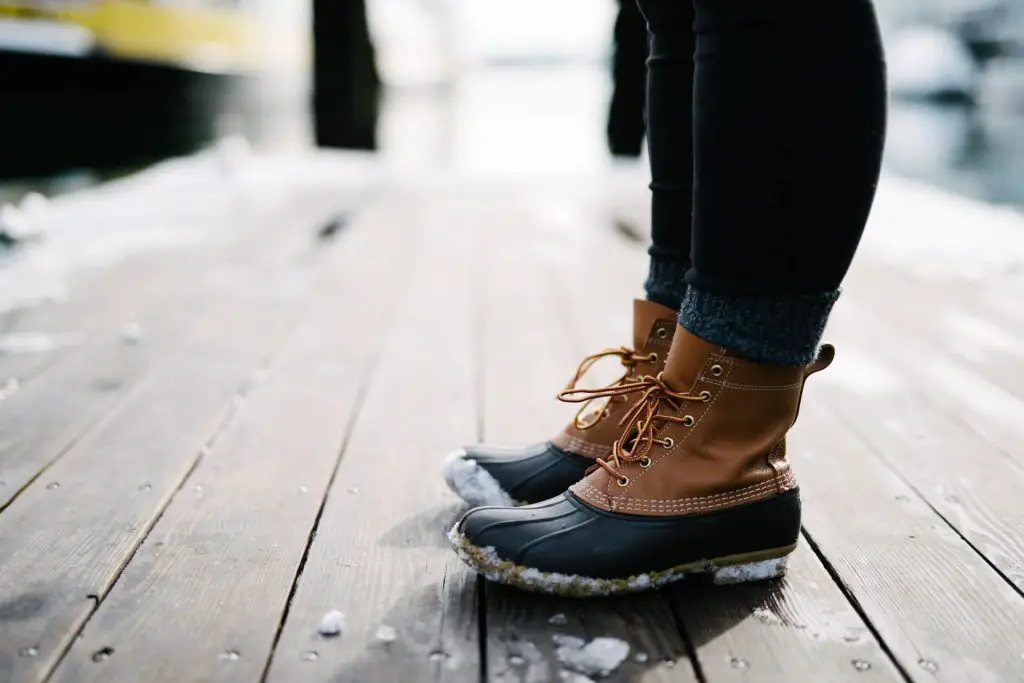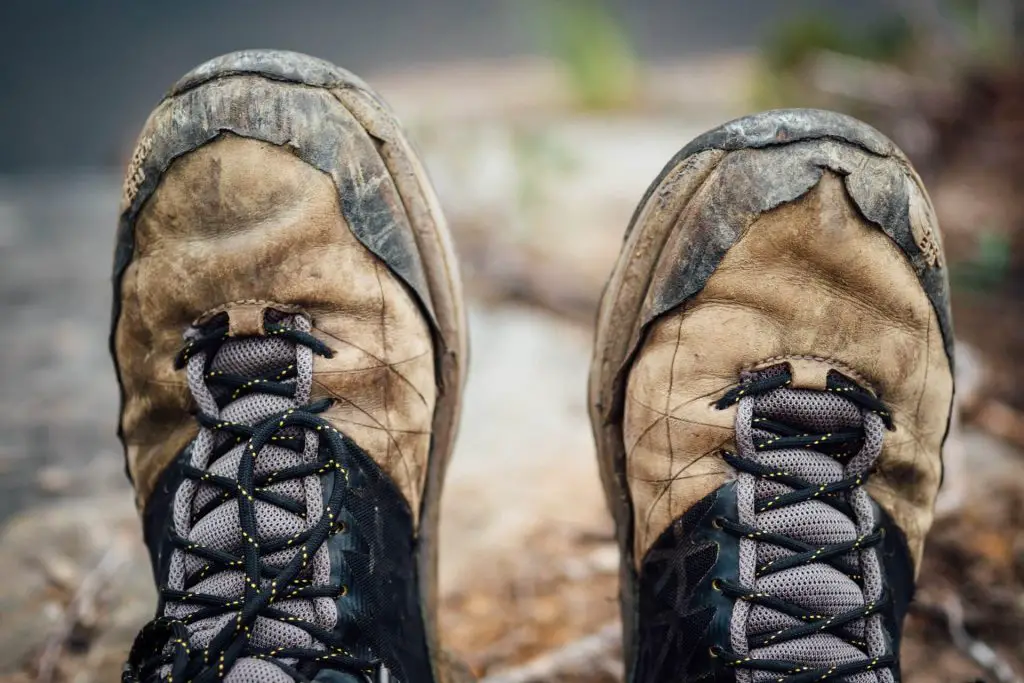
Hiking boots are fantastic shoes to wear while you are out in the wilderness and you are making your way from dirt trails, along granite boulders, and along narrow canyon ridges, but should you wear hiking boots every day?
Hiking boots can be worn for everyday use. They provide great ankle support, breathability, traction, and many other great features which allow you to tackle any walking surface from tile, carpet, asphalt, and concrete as the areas you walk on change throughout your day.
As an avid hiker who enjoys the comfort and design of hiking boots on my outdoor adventures, I have worn my hiking boots over many miles both on many trails and even during everyday use without any issues. However, there are some things you want to consider before lacing up your hiking boots as your daily pair of shoes.
Main considerations when wearing your hiking boots daily
Are these shoes your daily shoes or will you also take them hiking?
The most important factor when determining if you should wear your hiking shoes on a daily basis is if you also plan on using them to hike too. Although hiking shoes are rated to last for more than 500 miles on average, the tread and shoe materials will be worn down much faster as you wear them every day. This can impact how much grip and comfort you experience when you are out hiking, so keep this in mind before making your decision.
If you expect to go bouldering or to do a lot of scrambling on your future hikes where you know you need more grip and stability from your boots, then you might want to reconsider using your hiking boots as your daily shoes. Reserving the boots just for hiking will extend the life of the shoes, maintain the traction, and wear down the soles significantly less.
Will you wear hiking boots to exercise?
The next thing to consider is if you plan on also exercising in your hiking boots. Despite hiking boots being designed for durability, comfort, and intense use, they are not the best choice to use during aerobic and anaerobic exercises.
If you plan on running or other aerobic exercises then it is better to get running shoes or trail shoes as they are designed to help your foot with stability, shock absorption, and to use less energy. Since hiking boots are heavier compared to running shoes then you will burn more energy to move your feet as you run. it is better to use running shoes or cross-training shoes for aerobic exercises as they are much lighter, more breathable, and are typically less expensive to replace.
If you plan on lifting weights or do other anaerobic exercises, then you may want shoes that focus more on shoes that provide better movement of your heel or toes as you do a variety of intense workouts. For heavy lifting, the general preference is to have a flatter shoe with more of a heel drop so you can do more explosive movements. You may run into issues if your hiking boots are not as flat as you want during your heavy lifts or other anaerobic exercises.
How often will you need to replace your boots?

While hiking boots are generally rated to last anywhere between 500 to 900 miles, they technically aren’t designed to stand up to the daily wear and tear of walking across rough surfaces such as asphalt or concrete repeatedly. Although hiking boots are built more sturdy than the regular shoe, they also typically cost significantly more than your average shoe. The average shoe worn every day is estimated to need to be replaced between eight and ten months after an average use.
If you get a lot of miles and wear on your hiking boots through everyday use then you may have to replace them every year which can add up quickly. High-quality mid-range hiking boots typically cost between $120 and $150, so if you can afford to replace them at this price then wearing hiking boots every day is perfectly fine. A good alternative is to have a second pair of shoes to occasionally rotate between to help extend the life of your hiking boots.
Our Favorite Hiking Boots on the trail or for Every Day Use:
- Merrell Men’s Moab 2 Vent Mid Hiking Boot from Amazon
- Merrell Women’s Moab 2 Mid Waterproof Hiking Boot from Amazon
Does your workplace allow hiking boots?
Hiking boots are very versatile shoes for many types of environments, however, the one place where they might not last is your workplace. Be sure to look into your workplace dress code to see if you are allowed to wear your hiking boots during work. Some places can have a much more flexible dress code, while others are very strict and will not allow your hiking boots at work.
Are Hiking boots Bad for Your Feet?

Since the build of hiking boots is much more rigid compared to casual shoes, a common belief is that hiking shoes could be bad for your feet, however, this is not true. Hiking boots can have slight discomfort when you first get them as there is typically a break-in period for your new boots to mold to the contours of your feet. Once the break-in period is over, then your boots will feel much more comfortable.
One way that hiking boots can be bad for your feet is if you are not giving them adequate time to dry out. As you wear your shoes throughout the day moisture will build from the heat and sweat of your feet. Be sure to put your boots in a well-ventilated area between uses so the moisture can properly evaporate and not transform into moldy boots.
Is it bad to wear hiking boots on concrete?
If you’ve decided to wear your hiking boots on a daily basis then you will likely be consistently walking on concrete, so how will this impact your boots? Wearing hiking boots on concrete is not bad and perfectly fine. The soles of hiking boots are significantly more durable and contain much more traction compared to casual shoes. The only thing you may notice is the traction portion of the soles a bit more compared to when you are out on the dirt hiking trails as the concrete will make them feel a bit more pronounced.
The main consideration for hiking boots on concrete is that the concrete will likely wear down the traction and sole of your shoes much faster compared to the dirt trails. However, this is true for any shoe, but just something to keep in mind if you are planning on also using the same pair to hike as the lifetime of your shoe will be greatly reduced.
Summary
Hiking boots are a fantastic shoe to wear in the wilderness and also in town during everyday use. The first time I switched from running shoes to hiking boots on the trail, the difference was significant. I had ankle support, stability, and the cushions on the soles felt like light clouds as I made my way up the switchbacks of the mountains. From there I thought, would it be okay to wear these boots every day as I made my way around town?
After some time, I realized that it is definitely okay to wear hiking boots every day. The only times I don’t wear them is during exercise as they are not built for that and I want to extend the life of my boots. I also have rotated in other pairs of shoes as to not wear down the traction of my hiking boots too much. With these things in mind, you will be able to find the mixture that is perfect for you to wear your hiking boots every day.


